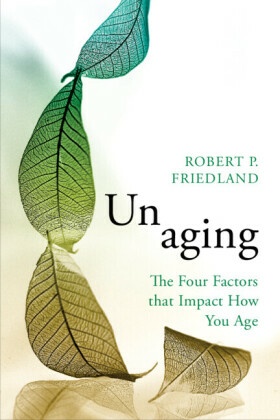Unaging - The Four Factors that Impact How You Age
| Verlag | Cambridge University Press |
| Auflage | 2022 |
| Seiten | 344 |
| Format | 13,0 x 2,0 x 19,7 cm |
| Gewicht | 390 g |
| Artikeltyp | Englisches Buch |
| EAN | 9781009087742 |
| Bestell-Nr | 00908774UA |
How we age depends on how we live. This book reveals the four factors that help us age well.
Aging is a subject of concern to everyone, but is widely misunderstood. If we view it as inevitable, we miss the fact that not everyone is able to grow to an old age. Realization of this reality helps us to understand that aging presents a wonderful opportunity - an opportunity to make choices about how we live which can enhance the aging process and offer a chance to live to our potential. This book clearly presents the four, multiple reserve, factors (cognitive, physical, psychological and social) which impact our ability to have healthy responses to the stresses of aging. By giving the biological basis for the advice given, you will learn the steps to take in your activities, diet and mental outlook to grasp the opportunity that aging offers. Everyone must know that what we do makes a difference.
Inhaltsverzeichnis:
List of Figures and Tables; Preface; Part I. Foundations: What Do We Need to Know About Optimal Aging?: 1.1 Aging is not inevitable, it is an opportunity; 1.2 The theory of the multiple reserve factors; 1.3 The Brain is not an organ, it is the Master; 1.4 Memory and cognition; 1.5 The neurodegenerative diseases of aging; 1.6 Stroke and vascular cognitive impairment; 1.7 Other dementias; 1.8 Our microbiota and how to do gene therapy in the kitchen; 1.9 The health of the body and your physical reserve factor; 1.10 Depression, anxiety and what good is feeling bad?; 1.11 Genetics aren't everything; Part II. Applications: What Can We Do About the Opportunity of Aging?: 2.1 Overview; 2.2 Physical activity; 2.3 Whole body health; 2.4 Mental activity; 2.5 Psychological measures; 2.6 Social factors; 2.7 Dealing with stress; 2.8 Sleep; 2.9 Diet; 2.10 Microbial considerations; 2.11 Dental care; 2.12 Dealing with Doctors and Drugs; 2.13 Hazardous behaviors; 2.14 Toxic exposures; Part III. Con clusions; 3.1 Considerations for Society and the Future of Aging; 3.2 Our Attitude and the Opportunity of Aging; Acknowledgments; Glossary; Endnotes; Index.
Rezension:
''One excellent way to improve memory is through stories', Prof. Friedland states in his book. And this book is not short of stories about our own, human, story. These enjoyable and informative stories stem from Prof. Friedland's vast clinical and neuroscience experience, shared in an entertaining and yet highly scientific manner. He encourages us to be an active participant in our own care and fierce in the pursuit of what's best for us and our health. In unrevealing the complex story of ageing and demystifying the ageing process, we are served with simple, scientifically based tips how to un-age. Please use them throughout your own (ageing) life and build your own stories each day.' Elizabeta Mukaetova-Ladinska, University of Leicester

